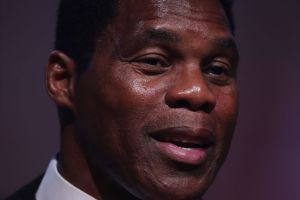The dark link connecting pornography to everything from depression to marital strain to erectile dysfunction to romantic disinterest is irrefutable. The neurological effects parallel substance abuse, quite literally rewiring men’s brains while polluting their hearts and sapping them of their ability to love.
The video medium of porn, its ubiquity, the instantaneous access — these things combine to wreak havoc on the neural wiring that underlies learning and memory processes. This is not the same as watching an action movie or reading a book; porn becomes more real to the mind than reality.
‘The properties of video porn make it a particularly powerful trigger for plasticity, the brain’s ability to change and adapt as a result of experience,’ writes Rachel Anne Barr, a doctoral student in neuroscience at Université Laval. ‘Combined with the accessibility and anonymity of online porn consumption, we are more vulnerable than ever to its hyper-stimulating effects.’
Barr points to the work of Norman Doidge, an expert on neuroplasticity, which shows how powerful and profitable are the effects. ‘Pornography satisfies every one of the prerequisites for neuroplastic change,’ Doidge explains. ‘When pornographers boast that they are pushing the envelope by introducing new, harder themes, what they don’t say is that they must, because their customers are building up a tolerance to the content.’
The unnaturally high levels of dopamine secreted while consuming porn numbs us to natural sources of pleasure, while the hyperstimulation of the medium erodes the part of the brain critical for impulse control and willpower — thus hindering moral development, as the two are necessary to deliberate, restrain oneself, and choose between right and wrong.
Generation Z, the most ‘online’ generation, is also the most sexless — not because of chaste mores but in part because hyperreal pornography has damaged their capacity and desire for human intimacy.
There is no question that watching porn reduces men to impotent spectators, fantasizing about the actions of others. But can watching sports do the same? In a way, yes, and the effects and consequences are not unknown to our cultural memory.
The familiar term ‘bread and circuses’ was coined by the poet Juvenal to mock the Roman populace’s preoccupation with gladiatorial games and chariot races, which he blamed for declining heroism and indifference to or ignorance of civic duty. In Juvenal’s view, corrupt elites had strengthened their hand by providing the people with a degrading distraction that diverted their energies and robbed the Romans of real meaning.
The only difference between now and then is that we have declared the bread and circuses a positive good. Indeed, this seems to be one of the few things on which there is bipartisan consensus. During the pandemic, as states banned religious gatherings while police bullied Americans for not wearing masks outdoors and surfing on lonely beaches, 73 percent of sports fans said watching games on TV helped them cope, with 60 percent saying it soothed their mental health. Many of our experts agree that such distraction and sense of pseudocommunity is a good thing.
Watching sports can provide a similar sense of belonging and meaning to that offered by a church congregation but with less risk of offense against this or that progressive piety. Indeed, sports have become a major vector for the spread of progressive ideology and symbolism. As far as the brain is concerned, the former is a good enough — or even better — substitute for the latter.
Using fMRI imaging, writes Barth, the Harvard Intergroup Neuroscience Lab ‘observed the brain activity of 18 diehard Red Sox and Yankees fans (who have been mortal enemies ever since the Red Sox dealt Babe Ruth to the Yankees in 1920) while subjecting them to video clips from ESPN’s Gamecast.’ It turns out the effects aren’t all that dissimilar from porn. ‘Upon witnessing their favored team score or strike out an opposing player, a flurry of activity is seen in the ventral striatum, a region of the brain associated with reward-based decision-making, as well as addiction.’
Sports fans also react to losses by producing more cortisol, a stress hormone connected to obesity, lowered libido, and erectile dysfunction. This is especially bad news for fans of the Cleveland Browns and Detroit Lions.
And as with watching porn, there is evidence that the more one watches sports, the more physically impotent one becomes.
A team of researchers examined the association between watching sports on TV, physical activity levels, and risk of obesity in 2014. ‘Watching elite athletes may have no role in the promotion of physical activity in older adults,’ they found. Further, obesity was prevalent in 30.8 percent of the sample group, and watching sports on TV was associated with a higher risk of obesity.
What of the effects on younger viewers? In 2018, a study led by Marie Bragg, a researcher at New York University, found fully three in four food advertisements and half of the drink promotions during major American sports programs promote high-calorie, sugar-filled products. ‘There is an inherent message in sports about the importance of physical fitness and health, and diet is a huge part of fitness and health,’ Bragg told Reuters. ‘Having highly visible sports organizations serve as a vehicle for promoting junk food to children sends a mixed message that is incompatible with maintaining a healthy diet.’
The National Football League had the most junk food sponsors, followed by the National Hockey League and Little League. ‘Exposure to food advertisements can influence children’s food preferences and purchase requests and can lead to increased short-term food consumption,’ the study reports. Meanwhile, data from the National Health and Nutrition Examination Survey found that almost one in five kids age two to 19 are obese. Across men, women, and adults of all age groups, about four in every 10 adults is considered obese — and watching sports is actually contributing to obesity and its attendant problems.
Worse yet, prevalent in the kinds of food and drink advertised during games are endocrine-disrupting chemicals connected to lower testosterone levels, falling sperm counts, and the rise of defective sperm in males; in females, they can mean early puberty, declining egg quality, and more miscarriages. Infants with greater exposures to endocrine disruptors like phthalates tend to have higher rates of physical deformations, including smaller penises.
A small price to pay to watch an athlete who hates the country in which he was born and bred play a game.
The physical consequences of watching sports, like those of porn consumption, ultimately make men distracted, weaker, fatter, and less virile. But the moral, civic, and spiritual parallels are even clearer and more disturbing.
At the height of the controversy over athletes protesting and condemning the United States, the police, many avid sports fans, and even conservatives refused to turn off the television. They kept on donning jerseys, kept on drinking and eating junk while complaining about America going to hell. And as Black Lives Matter riots tore through the country, as athletes showed solidarity with the mayhem, the same sports fans watched just as attentively, complying with the restrictions that kept them out of churches and gyms but didn’t do much to stop looters. The same people who organized to wave flags in protest against the pillaging of cities never stopped patronizing the individuals and organizations that fueled last year’s days of rage.
Why? Many people simply wanted and needed to watch their favorite teams, although they didn’t like the shame and guilt that accompanied recognizing the dissonance between their views and those of the athletes and the industry. Once again, there is an interesting parallel here. A study found that compulsive porn consumers report wanting and needing more porn, although they don’t necessarily like it. ‘This disconnect between wanting and liking is a hallmark feature of reward circuitry dysregulation,’ writes Barr. That kind of dysregulation seems to be the hallmark of mass man in mass society — a feature rather than a bug.
The first step toward recovery is admitting we have a problem. And as C.S. Lewis wrote, the problem in our time is that we ‘make men without chests and expect of them virtue and enterprise.’ In other words, we have lost sight of what makes men good yet complain about the consequences of a world without the virtue for which good men are necessary. ‘We laugh at honor and are shocked to find traitors in our midst. We castrate and bid the geldings be fruitful,’ Lewis concludes. So castrated are we now that we are not even allowed to notice that those most vulnerable to COVID-19 are obese and sedentary. It does not strike us as odd that swinish individuals like CNN’s Brian Stelter should wheezingly comment on public health issues.
To watch sports today is to subsidize the enemies of decency and virtue, all the while allowing ourselves to physically and morally wither. It is the glorification of bread and circuses and the squandering of vital energies. But it doesn’t have to be this way, and fighting back is as easy as turning off the television and relearning how to be good and strong.


















